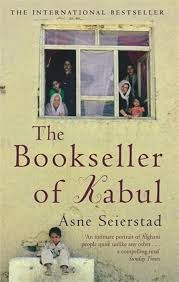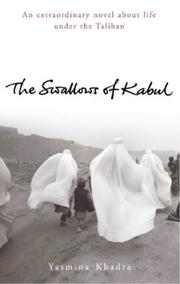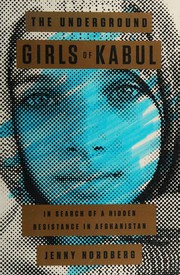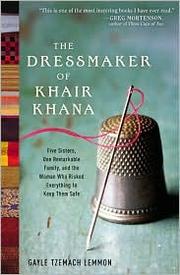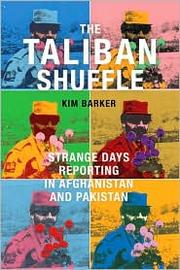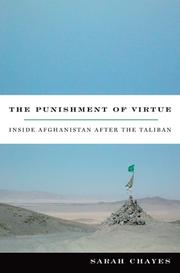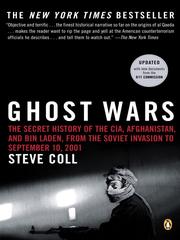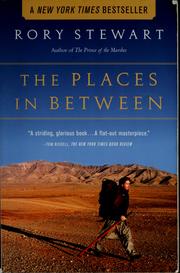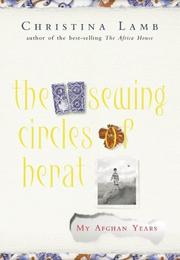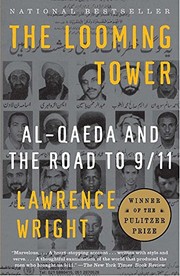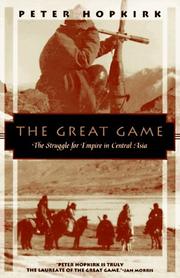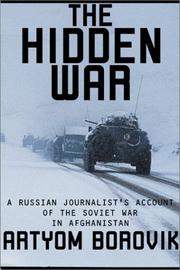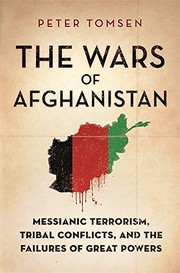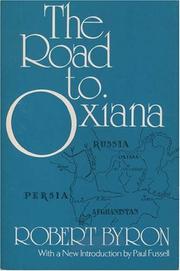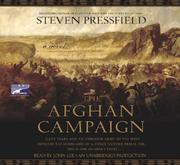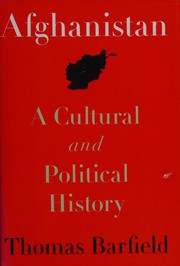Are you fascinated by the rich and complex history of Afghanistan? Look no further than this curated list of the 20 best books on Afghanistan history. From ancient empires to modern conflicts, these books offer a deep dive into the cultural, political, and social forces that have shaped Afghanistan over the centuries. Whether you’re a history buff or simply curious about this enigmatic country, these books will provide a comprehensive understanding of Afghanistan’s past and present.
Contents
- 1 20 Best Books About Afghanistan History
- 2 The Kite Runner
- 3 A Thousand Splendid Suns
- 4 The Bookseller of Kabul
- 5 The Swallows of Kabul
- 6 The Underground Girls of Kabul
- 7 The Dressmaker of Khair Khana
- 8 The Taliban Shuffle: Strange Days in Afghanistan and Pakistan
- 9 The Punishment of Virtue: Inside Afghanistan After the Taliban
- 10 The Forever War
- 11 Ghost Wars: The Secret History of the CIA, Afghanistan, and Bin Laden, from the Soviet Invasion to September 10, 2001
- 12 The Places in Between
- 13 The Sewing Circles of Herat: A Personal Voyage Through Afghanistan
- 14 The Looming Tower: Al-Qaeda and the Road to 9/11
- 15 The Last Thousand: One School’s Promise in a Nation at War
- 16 The Great Game: The Struggle for Empire in Central Asia
- 17 The Hidden War: A Russian Journalist’s Account of the Soviet War in Afghanistan
- 18 The Wars of Afghanistan: Messianic Terrorism, Tribal Conflicts, and the Failures of Great Powers
- 19 The Road to Oxiana
- 20 The Afghan Campaign
- 21 Afghanistan: A Cultural and Political History
- 22 Conclusion
- 23
- 24 The Iditarod Books: A Curated 2024 Updated List
- 25 Unveiling the Best Space And Time Travel Books in this 2024 Update
- 26 Portugal Books: 2024's Collection of 20 Must-Reads
20 Best Books About Afghanistan History
The Kite Runner
by Khaled Hosseini
The Kite Runner by Khaled Hosseini is a deeply moving novel that delves into the complexities of friendship, betrayal, and redemption in the backdrop of Afghanistan’s tumultuous history. The story follows the protagonist, Amir, as he navigates the repercussions of a childhood act of cowardice that haunts him into adulthood. Set against the backdrop of Afghanistan’s turbulent political upheavals, the novel offers a poignant exploration of guilt, forgiveness, and the enduring bonds of love and kinship. The evocative storytelling and vivid portrayal of Afghan culture and societal changes make it a compelling read for those interested in a book on Afghanistan history. With its rich tapestry of emotions and vivid depiction of a country in flux, The Kite Runner is a powerful narrative that resonates long after the final page.
A Thousand Splendid Suns
by Khaled Hosseini
A Thousand Splendid Suns, written by Khaled Hosseini, is a captivating novel set in Afghanistan. This powerful story follows the lives of two women, Mariam and Laila, who are brought together by the tumultuous events of Afghanistan’s history. The novel weaves a compelling narrative of love, sacrifice, and resilience against the backdrop of war, oppression, and the ever-changing political landscape of the country. Through the lives of these two women, Hosseini offers a poignant and intimate portrayal of the struggles and triumphs of the Afghan people during a tumultuous period. A Thousand Splendid Suns is a moving and unforgettable exploration of the human spirit and the enduring strength of the people living in a war-torn country. This is a must-read for anyone interested in a book about Afghanistan history.
The Bookseller of Kabul
by Åsne Seierstad
The Bookseller of Kabul by Åsne Seierstad is a compelling non-fiction book that offers a captivating glimpse into the lives of people living in Afghanistan. Through the lens of a bookseller, the author provides a unique perspective on the country’s rich and complex history. This book is a fascinating exploration of Afghan culture, tradition, and the impact of historical events on the lives of its people. Seierstad’s vivid storytelling and in-depth research bring to life the struggles, hopes, and resilience of the characters, making it a must-read for anyone interested in gaining a deeper understanding of Afghanistan’s past and present. Whether you are a history enthusiast or simply curious about the country, this book on Afghanistan history will undoubtedly leave a lasting impression.
The Swallows of Kabul
by Yasmina Khadra
The Swallows of Kabul by Yasmina Khadra is a poignant and evocative novel set in the backdrop of war-torn Afghanistan. The story follows two couples living in Kabul under the oppressive rule of the Taliban. As the characters navigate the harsh realities of their lives, the novel offers a powerful exploration of love, loss, and the resilience of the human spirit amidst the backdrop of the country’s tumultuous history. The book provides a profound look into the lives of ordinary people struggling to find hope and meaning in a society ravaged by conflict. With its vivid and lyrical prose, The Swallows of Kabul is a compelling and thought-provoking read that offers a unique perspective on the history of Afghanistan.
The Underground Girls of Kabul
by Jenny Nordberg
The Underground Girls of Kabul by Jenny Nordberg is a captivating non-fiction book that delves into the hidden world of bacha posh, girls who are raised as boys in Afghanistan. Nordberg, an investigative journalist, uncovers the cultural and societal reasons behind this practice, shedding light on the complex and often oppressive gender dynamics in Afghan society. Through in-depth research and personal interviews, Nordberg provides a poignant and eye-opening exploration of the struggles and resilience of these young girls who navigate the limitations placed upon them by their society. This book offers a unique perspective on the intersection of gender, culture, and tradition in Afghan society, making it a must-read for anyone interested in understanding the complexities of Afghan history and culture.
The Dressmaker of Khair Khana
by Gayle Tzemach Lemmon
The Dressmaker of Khair Khana by Gayle Tzemach Lemmon is a captivating book about the resilience and ingenuity of a group of women in Kabul during the Taliban era. This inspiring true story follows Kamila Sidiqi, a young Afghan woman who becomes the breadwinner for her family after her father and brother are forced to flee the country. Despite the oppressive conditions, Kamila starts a successful dressmaking business from her home, employing other women in her community and providing them with a means of supporting their families. The book offers a glimpse into the daily struggles and triumphs of women in Afghanistan, showcasing their resourcefulness and determination in the face of adversity. The Dressmaker of Khair Khana is a compelling and uplifting read that sheds light on the resilience of Afghan women during a turbulent period in the country’s history.
The Taliban Shuffle: Strange Days in Afghanistan and Pakistan
by Kim Barker
The Taliban Shuffle: Strange Days in Afghanistan and Pakistan by Kim Barker is a gripping memoir that provides a unique and humorous insight into the complexities of war-torn Afghanistan and Pakistan. Barker, a journalist, offers a firsthand account of her experiences reporting from the region, sharing the challenges, absurdities, and dangers she encountered while navigating the political and cultural landscape. This book on Afghanistan history sheds light on the intricate relationships between the local population, the Taliban, and the international forces, offering a compelling and honest portrayal of the realities of conflict and survival in the region. Through her vivid storytelling and sharp wit, Barker provides a compelling and eye-opening perspective on the turbulent history of Afghanistan and Pakistan.
The Punishment of Virtue: Inside Afghanistan After the Taliban
by Sarah Chayes
The Punishment of Virtue: Inside Afghanistan After the Taliban by Sarah Chayes provides a captivating and insightful look into the post-Taliban era in Afghanistan. Chayes, a former NPR correspondent, offers a firsthand account of the country’s tumultuous history and the challenges faced in rebuilding the nation. Through her experiences living and working in Afghanistan, she delves into the complex web of political corruption, tribal conflicts, and the struggle for democracy. This book on Afghanistan history is a compelling exploration of the country’s ongoing struggles and the resilience of its people. Chayes’ narrative is both informative and gripping, making it a must-read for anyone interested in understanding the complexities of Afghanistan’s recent history.
The Forever War
by Dexter Filkins
The Forever War by Dexter Filkins is a gripping and vivid account of the conflicts in Afghanistan and Iraq. This book on Afghanistan history takes readers on a harrowing journey through the chaos and violence of these war-torn regions, providing a deeply personal and intimate perspective on the devastating impact of these conflicts on the lives of soldiers, civilians, and insurgents alike. Filkins, a Pulitzer Prize-winning journalist, offers a raw and unflinching portrayal of the human cost of war, drawing on his own experiences and extensive reporting to paint a haunting picture of the realities of modern warfare. Through his powerful storytelling and keen insights, Filkins sheds light on the complexities and tragedies of these conflicts, making The Forever War an essential read for anyone seeking to understand the profound and enduring impact of war on a global scale.
Ghost Wars: The Secret History of the CIA, Afghanistan, and Bin Laden, from the Soviet Invasion to September 10, 2001
by Steve Coll
Ghost Wars: The Secret History of the CIA, Afghanistan, and Bin Laden, from the Soviet Invasion to September 10, 2001 by Steve Coll is a gripping and meticulously researched book about the covert operations and political maneuverings that shaped the history of Afghanistan. Coll provides a detailed account of the CIA’s involvement in Afghanistan from the Soviet invasion in the 1980s to the rise of the Taliban and the events leading up to September 11, 2001. Through extensive interviews and access to classified documents, Coll unravels the complex web of alliances, betrayals, and unintended consequences that have had a lasting impact on the region and the world. This book on Afghanistan history is a must-read for anyone interested in understanding the geopolitical dynamics of the region and the roots of modern-day conflicts.
The Places in Between
by Rory Stewart
The Places in Between by Rory Stewart is a captivating travel memoir that takes readers on a remarkable journey through the rugged and remote landscapes of Afghanistan. As Stewart embarks on a daring trek across the war-torn country, he provides a unique and intimate glimpse into the rich and complex history of this ancient land. This gripping account offers a firsthand perspective on the people, culture, and challenges of Afghanistan, making it a compelling read for anyone interested in the tumultuous history of Afghanistan. Stewart’s vivid storytelling and keen observations shed light on the resilience and spirit of the Afghan people, while also offering a deeper understanding of the country’s turbulent past. The Places in Between is an essential book on Afghanistan history that immerses readers in the enduring legacy of this enigmatic nation.
The Sewing Circles of Herat: A Personal Voyage Through Afghanistan
by Christina Lamb
The Sewing Circles of Herat: A Personal Voyage Through Afghanistan by Christina Lamb is a captivating book on Afghanistan’s history, taking readers on a journey through the country’s tumultuous past. Lamb weaves together personal anecdotes, historical accounts, and interviews with Afghan citizens to provide a vivid and intimate portrait of the nation. Through her exploration of the “sewing circles” – underground schools for women during the Taliban regime – Lamb sheds light on the resilience and strength of Afghan women in the face of adversity. The book offers a unique perspective on Afghanistan’s complex history, shedding light on the country’s cultural heritage, political turmoil, and the impact of war on its people. Lamb’s engaging storytelling and deep empathy for her subjects make this book a compelling and essential read for anyone interested in understanding the intricacies of Afghanistan’s past and present.
The Looming Tower: Al-Qaeda and the Road to 9/11
by Lawrence Wright
The Looming Tower: Al-Qaeda and the Road to 9/11 by Lawrence Wright is a riveting book on Afghanistan history that meticulously traces the rise of Al-Qaeda and the events leading up to the 9/11 terrorist attacks. Wright provides a gripping narrative that delves into the complex web of political, religious, and ideological factors that shaped the trajectory of Al-Qaeda and its leader, Osama bin Laden. Through extensive research and firsthand accounts, the book offers a comprehensive understanding of the afghanistan history book and the global implications of the 9/11 attacks. Wright’s compelling storytelling and insightful analysis make this a must-read for anyone interested in understanding the roots of modern terrorism and the tumultuous book about Afghanistan history.
The Last Thousand: One School’s Promise in a Nation at War
by Jeffrey E. Stern
The Last Thousand: One School’s Promise in a Nation at War is a captivating book about Afghanistan history that follows the story of a unique school in the war-torn country. Jeffrey E. Stern takes readers on a compelling journey through the challenges and triumphs of Marefat High School, an institution that defies the odds to provide education and hope to its students in the midst of conflict. Stern’s powerful storytelling and intimate portrayal of the school’s students, teachers, and community shed light on the resilience and determination of the Afghan people. This book on Afghanistan history offers a poignant and insightful look at the impact of war on education and the enduring human spirit. The Last Thousand is a must-read for anyone interested in understanding the complexities of Afghanistan history and the resilience of its people.
The Great Game: The Struggle for Empire in Central Asia
by Peter Hopkirk
The Great Game: The Struggle for Empire in Central Asia by Peter Hopkirk is a captivating exploration of the historical power struggles and espionage tactics between the British and Russian Empires in Central Asia during the 19th century. This thrilling account takes readers on a journey through the treacherous terrain of the region, where political intrigue, military maneuvering, and secret missions were the norm. Hopkirk’s meticulous research and vivid storytelling bring to life the high-stakes competition for control of the ‘heart of Asia’, shedding light on the complex geopolitical dynamics that continue to shape the region today. Whether you’re a history buff or simply curious about the intricate web of power dynamics in Central Asia, this book on Afghanistan history is a must-read for anyone interested in the tumultuous history of the region.
The Hidden War: A Russian Journalist’s Account of the Soviet War in Afghanistan
by Artyom Borovik
The Hidden War: A Russian Journalist’s Account of the Soviet War in Afghanistan by Artyom Borovik is a captivating book about Afghanistan history. Borovik provides a firsthand account of the brutal and secretive Soviet occupation of Afghanistan during the 1980s. Through his experiences as a war correspondent, he sheds light on the hidden truths and atrocities of this conflict, offering a unique perspective on the afghanistan history book.
Borovik’s storytelling is compelling and eye-opening, as he unveils the struggles and complexities of the war, the impact on the Afghan people, and the disillusionment of the Soviet soldiers. His narrative is both informative and personal, making The Hidden War an essential read for anyone interested in gaining a deeper understanding of the book on Afghanistan history.
The Wars of Afghanistan: Messianic Terrorism, Tribal Conflicts, and the Failures of Great Powers
by Peter Tomsen
The Wars of Afghanistan: Messianic Terrorism, Tribal Conflicts, and the Failures of Great Powers by Peter Tomsen is a comprehensive book about Afghanistan history that delves into the complex and turbulent history of the region. Tomsen provides a detailed account of the messianic terrorism, tribal conflicts, and the involvement of great powers in Afghanistan. The book offers a deep analysis of the factors that have contributed to the ongoing strife in the country, from the rise of extremist ideologies to the interference of external powers. Tomsen’s work is a vital resource for anyone seeking to understand the intricacies of Afghanistan’s past and present, shedding light on the failures of both domestic and international actors in resolving the conflicts that have plagued the region for decades.
The Road to Oxiana
by Robert Byron
The Road to Oxiana is a captivating travelogue written by Robert Byron, chronicling his journey through the Middle East and Central Asia in the 1930s. This remarkable book on Afghanistan history offers a unique insight into the region’s culture, architecture, and people, as well as the author’s own personal experiences and musings.
Byron’s engaging writing style and keen observations make this book about Afghanistan history a compelling read for anyone interested in travel literature, art, and history. The Road to Oxiana is not just a travel memoir, but a rich tapestry of the author’s encounters and adventures, providing a vivid portrayal of the landscapes and societies he encountered on his journey.
The Afghan Campaign
by Steven Pressfield
The Afghan Campaign by Steven Pressfield is a captivating historical fiction novel that delves into the ancient world of Afghanistan. Set in the 4th century B.C., the story follows the conquest of Alexander the Great as he leads his army into the treacherous terrain of the Afghan region. Through vivid storytelling, Pressfield brings to life the harsh realities of war, the complexities of cultural clashes, and the struggles of conquest in a land steeped in history and tradition. This gripping book on Afghanistan history offers a compelling blend of military strategy, political intrigue, and personal drama, making it a must-read for anyone interested in the book about Afghanistan history or seeking a deeper understanding of the Afghanistan history book.
Afghanistan: A Cultural and Political History
by Thomas Barfield
Afghanistan: A Cultural and Political History by Thomas Barfield is a fascinating exploration of the rich and complex history of Afghanistan. This comprehensive book delves into the country’s cultural and political evolution, from its ancient roots to modern times. Barfield skillfully navigates the reader through the various influences and conflicts that have shaped Afghanistan, providing valuable insights into the nation’s diverse ethnic groups, religious traditions, and political dynamics. Through engaging storytelling and meticulous research, the author offers a deep understanding of the challenges and triumphs that have defined Afghanistan’s history. Whether you’re a history enthusiast or simply curious about this enigmatic land, this book on Afghanistan history is a must-read for anyone seeking a nuanced perspective on the country’s past and present.
Conclusion
In conclusion, these 20 books about Afghanistan History offer a comprehensive and diverse exploration of the country’s rich and complex past. From ancient civilizations to modern conflicts, these books provide valuable insights into the cultural, political, and social dynamics that have shaped Afghanistan over the centuries. Whether you are a history enthusiast or simply curious about this fascinating region, these books are essential reads for anyone seeking to understand the complexities of Afghanistan’s history.
Which Afghanistan History book is best?
The best book on Afghanistan History can vary with personal preference, but three widely recommended titles are:
- The Kite Runner by Khaled Hosseini,
- A Thousand Splendid Suns by Khaled Hosseini,
- The Bookseller of Kabul by Åsne Seierstad.
Each offers valuable insights and could be a great starting point.
What are the best books to learn about Afghanistan History?
For those looking to learn about Afghanistan History, there is a wealth of literature that can provide a comprehensive understanding of the subject. Some of the most highly recommended books include:
- The Kite Runner by Khaled Hosseini,
- A Thousand Splendid Suns by Khaled Hosseini,
- The Bookseller of Kabul by Åsne Seierstad,
- The Swallows of Kabul by Yasmina Khadra,
- The Underground Girls of Kabul by Jenny Nordberg,
- The Dressmaker of Khair Khana by Gayle Tzemach Lemmon,
- The Taliban Shuffle: Strange Days in Afghanistan and Pakistan by Kim Barker,
- The Punishment of Virtue: Inside Afghanistan After the Taliban by Sarah Chayes,
- The Forever War by Dexter Filkins,
- Ghost Wars: The Secret History of the CIA, Afghanistan, and Bin Laden, from the Soviet Invasion to September 10, 2001 by Steve Coll
These books offer a range of perspectives on Afghanistan History, covering various aspects and approaches to the subject.
What are the best books on Afghanistan History?
The best books on Afghanistan History include:
- The Kite Runner by Khaled Hosseini,
- A Thousand Splendid Suns by Khaled Hosseini,
- The Places in Between by Rory Stewart,
- The Sewing Circles of Herat: A Personal Voyage Through Afghanistan by Christina Lamb,
- The Punishment of Virtue: Inside Afghanistan After the Taliban by Sarah Chayes,
- The Dressmaker of Khair Khana by Gayle Tzemach Lemmon.
Each offers unique insights into the subject. While these books on the topic of Afghanistan History are highly regarded, it’s important to note that any list of ‘best’ books is subjective and reflects a range of opinions.
What are the best Afghanistan History books of all time?
Choosing the best Afghanistan History books of all time can vary depending on who you ask, but seven titles that are often celebrated include
- The Kite Runner by Khaled Hosseini,
- A Thousand Splendid Suns by Khaled Hosseini,
- The Underground Girls of Kabul by Jenny Nordberg,
- The Punishment of Virtue: Inside Afghanistan After the Taliban by Sarah Chayes,
- Ghost Wars: The Secret History of the CIA, Afghanistan, and Bin Laden, from the Soviet Invasion to September 10, 2001 by Steve Coll,
- The Sewing Circles of Herat: A Personal Voyage Through Afghanistan by Christina Lamb,
- and The Places in Between by Rory Stewart.
Each of these books has made a significant impact in the field of Afghanistan History and continues to be influential today.



